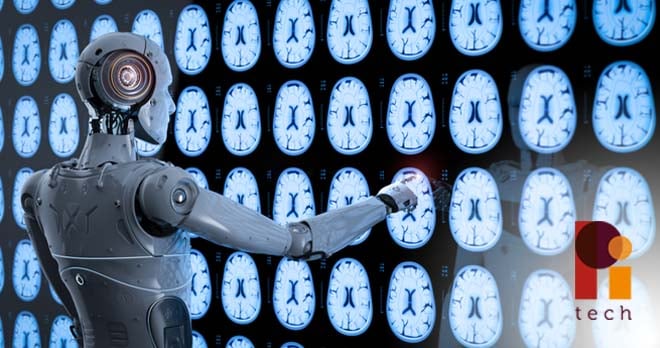Should artificial intelligence dictate how healthcare is administered?

Over recent years, as technology has improved, what is known as ‘AI’ has come on a long way, with machines now able to demonstrate basic features of human intelligence including decision-making, task-processing and communication. Many of us now use something similar to AI in our homes, workplaces and on our mobile phones but; do we trust it in a healthcare setting?
How is AI used in a healthcare setting?
One of the key benefits of the use of AI in a healthcare setting is the ability to free up clinicians from administrative tasks allowing them more time to focus on patients. AI can assist with reviewing laboratory data and imaging results as well as perform patient data entry. It can also, with the right algorithms programmed, retrieve relevant patient information and even predict which patients are more likely to forget appointments prompting reminders to be sent, ultimately saving money that is currently wasted on missed appointments.
Aside from the administrative role that AI can play in a healthcare setting, it has been shown to be able to successfully monitor patients in hospital providing data on heart rate, blood pressure and sleep patterns, and to be able to continue to monitor patients following their discharge with the use of virtual health assistants. These can schedule follow up appointments and remind patients to take medication.
Whilst these are all data based tasks, AI has also been demonstrated to be able to assist with health interventions, we have previously written about the use of robotic assistants in care homes and it is clear that these assistants can help to fill some of the gaps in assistance required for elderly members of the community. Robotic assistants can remind older people to engage in regular activities, guide them through unfamiliar environments and provide company or something to sooth those suffering with dementia.
Additionally, AI in the form of robotics has been assisting with education and surgeries. Whilst, for the moment, surgical robots are driven by human surgeons and are, on the whole, still only sophisticated manipulation devices, there continues to be research into the development of autonomous surgery and it is possible that, in the not too distant future, surgeries could be carried out by robots alone.
Are there any drawbacks to using this technology in healthcare?
Many of us might feel uncomfortable knowing that our healthcare may be partially in the hands of a machine but, are we right to feel concerned or should we just embrace this new technology as the next step for healthcare in the UK?
Whilst the use of AI will, undoubtedly assist in freeing up clinicians time, given that more complex algorithms and programs remain relatively new, there are technical limitations. Its ability to process language and apply context-specific reasoning is not yet at the same level as its human counterpart. This could, arguably lead to errors occurring and, if they did, it is very difficult to establish who is responsible. Is it the company that manufactures the technology, the programmer or the clinic or clinician who was using the technology to assist?
In order to prevent medical errors, it is essential that clinicians are involved in the development of any algorithms that form the basis of an ‘AI’ and are aware of how it works, including how the decision making of the technology operates to help prevent any errors. However, as the algorithms programmed become more complex and the decision making of the technology becomes more opaque, it is much harder for clinicians to understand the way in which a decision is made and therefore identify incorrect decisions in a timely manner to prevent harm.
Whilst technology has come a long way in recent years and the use of AI in a healthcare setting can be of enormous benefit, it is clear that there is still more work required before we see fully automated procedures. That said, I am fascinated to see what the future holds!